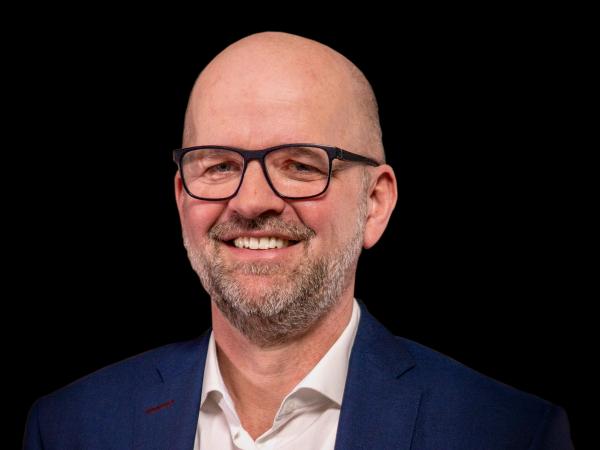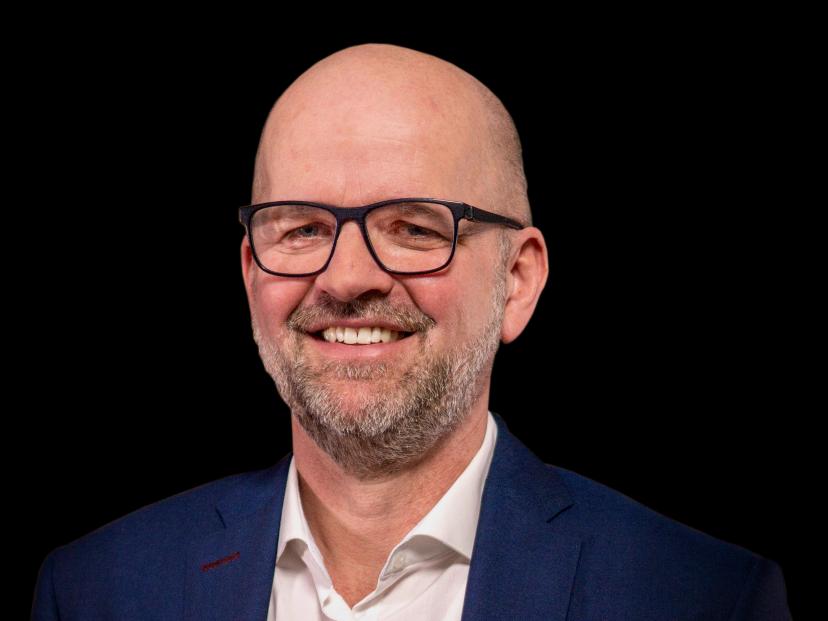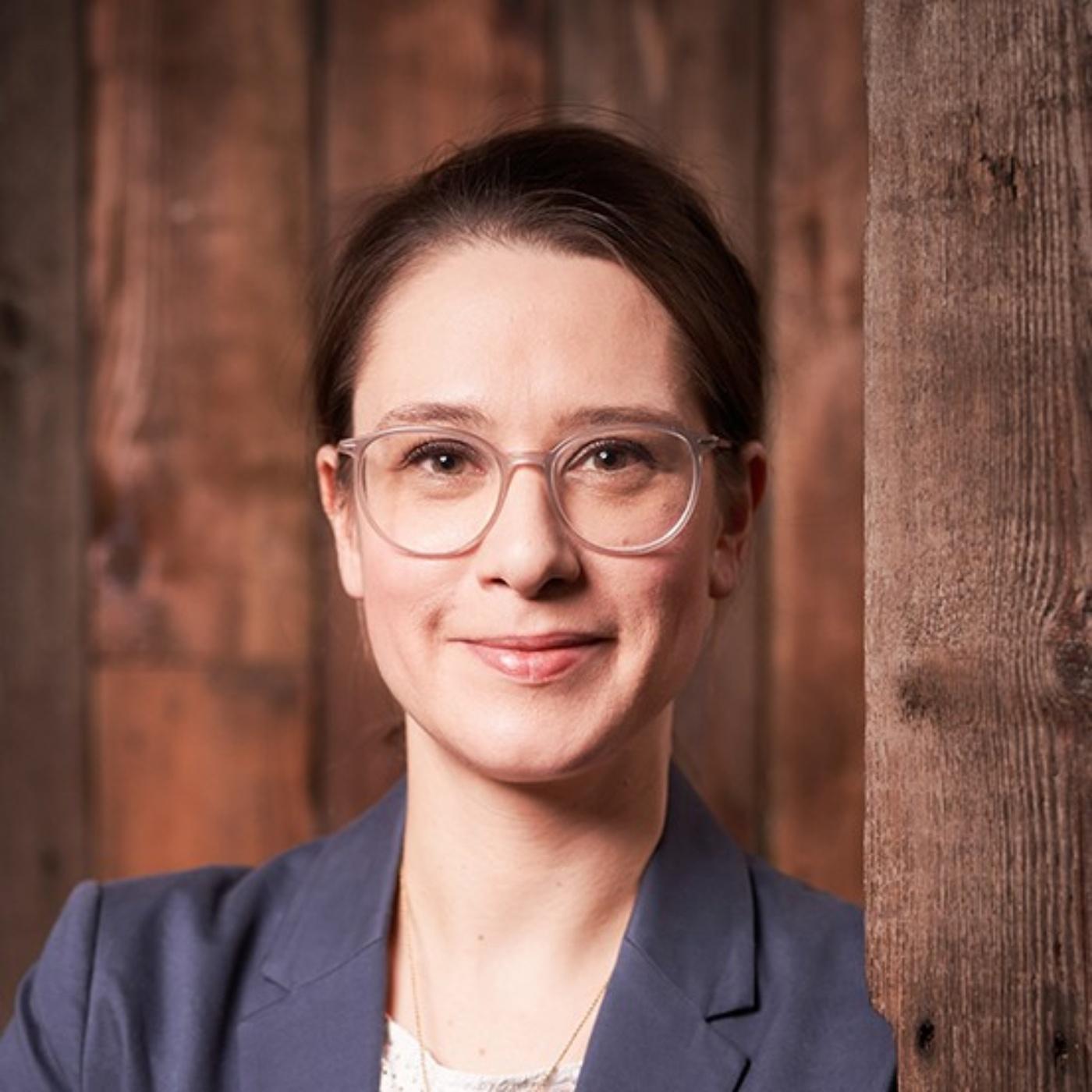







Event
VDA SME Day 2025: Perspectives for automotive value creation
Value creation potential, securing financing, geopolitical conflicts, international competition - at the anniversary edition of the VDA SME Day, a wide range of topics were discussed that are currently affecting medium-sized companies in the supplier industry.
Value creation potential, securing financing, geopolitical conflicts, international competition - at the anniversary edition of the VDA SME Day, a wide range of topics were discussed that are currently affecting medium-sized companies in the supplier industry.
Under the conference title "Perspectives on Automotive Value Creation," the German Association of the Automotive Industry hosted the 25th edition of the VDA SME Day on May 21 and 22, 2025. Over 200 executives and managing directors from suppliers and manufacturers of trailers, bodies, and buses, as well as from automobile manufacturers, accepted the invitation to Bonn. The annual, two-day conference offers an important platform for face-to-face meetings and intensive discussions on the most exciting industry topics and personal experiences.
The focus was on issues relating to increasing production and simultaneously reducing the carbon footprint, the weak markets in Europe and Germany, financing hurdles, international trade conflicts and the increasing global protectionism.
Isabelle Kirschbaum-Rupf, a member of the VDA Executive Board, spokesperson for the VDA SME Forum, and shareholder of the Rupf Industries Group, opened the event with her welcoming speech. She addressed the question of how German automotive companies can position themselves for the future and finance the transformation processes:





Those who struggle to access capital find it difficult to invest and position their companies for the future. Therefore, financing is one of the key issues for the supplier industry in Germany. To successfully master the transformation, medium-sized automotive suppliers need more than just traditional bank loans. They need genuine transformation financing and support.Isabelle Kirschbaum-RupfVDA Executive Board Member, Spokesperson VDA SME Forum, shareholder of Rupf Industries GmbH
She further explained that, in particular, the regulatory levers for banks at national and EU level should be reassessed and adjusted: "They must be harmonized so that automotive suppliers can be even better supported and understood by their banks in their transformation. Because there is no such thing as a single uniform supplier, differentiation is important," Kirschbaum-Rupf continued.
Topics that are currently of particular interest to the automotive industry
The automotive industry's transformation toward climate neutrality and digitalization, as well as intensifying international competition, are placing significant demands on mid-sized automotive companies. Therefore, the key challenges, ideas, and solutions for a successful future of the automotive industry were also a focus of discussion with experts from the industry, as well as from business, science, and politics. You can view the program for the VDA SME Day 2025 here.
The breaks in the program offered opportunities for longer discussions and networking.
Some highlights from the program:

1. Panel "Successfully shaping transformation"
How German automotive companies can position themselves for the future and finance the transformation processes was discussed intensively in a roundtable with Michael Frick, CFO of the ZF Group, Dr. Tobias Braun, CFO of the Benteler Group, Markus Cichy, LL.M., Head of Group Supplier Risk Management and Antitrust at the VW Group, Stefan Kraus, Member of the Management Board & Head of Automotive at IKB Deutsche Industriebank AG, Kolja Kress, CFO Executive Board of the Woco Group and Jens von Loos, Managing Director at Deloitte.
Michael Frick commented: "As every company asserts its unique selling point in the market, it should emphasize its ability to develop new technologies and products. This demonstrates its ability to adapt to market changes. On the other hand, clear and transparent financial reporting is important so that investors can gain an understanding of the company's financial base. This includes regular communication and maintaining a trusting business relationship."
It became clear that in challenging times, we need to think in a variety of ways when tapping into sources of financing. Close partnerships with OEMs or Tier-1 suppliers (which is a direct supplier to an OEM that specializes in delivering complete systems or modules) strengthen investor confidence and signal stability. The medium-sized automotive industry in particular is highly innovative and shows great commitment.
Now it is also important to communicate the original strengths of medium-sized suppliers more confidently: they rely on long-term strategies and, through their high level of innovation and specialization, make a significant contribution to value creation in Germany - an important message that emerged from the session.
2. Interview on the focus topic of transformation financing
Keynote "Tariffs, trade disputes, geopolitical conflicts: How Stellantis is preparing for the future"
In his keynote speech, Matthias Brueggemann, Vice President Corporate Purchasing & Supplier Quality at Stellantis, offered exciting insights into how the globally active manufacturer is addressing current and future challenges facing automotive supply chains and what is important when collaborating with suppliers: "We are undergoing a fundamental transformation from a traditional automobile manufacturer to a company for sustainable mobility technologies. This requires a shift in thinking and acting on our part, as well as on the part of our partners."
He also made it clear that sustainable resilience of supply chains plays a significant role on the way there, which can only be achieved together with manufacturers and suppliers.
"Deep Dives": four focus topics on automotive value creation
In addition to the numerous keynote speeches and panel discussions, the VDA SME Day also focused on professional exchange among participants. They were able to share their experiences and questions in four deep dives. Each session explored a current challenge facing SMEs in the automotive industry and explored possible solutions.
Deep Dive 1: Prof. Dr.-Ing. Thomas Bauernhansl, Managing Director of the Fraunhofer Institute for Manufacturing Engineering and Automation IPA, and Daniel Ranke, Head of Operations at the Fraunhofer Institute for Manufacturing Engineering and Automation IPA, highlighted the advantages of flexibly linked process modules that can be controlled on a job-specific basis, opening up new design options for company structures and processes. Case studies illustrated how a further development from a (rigid) line to highly flexible and efficient systems can proceed in the automotive industry.
Deep Dive 2: Tobias Eiber, Head of Operations Engineering Battery at Dräxlmaier, and Dr. Tobias Girschick, Head of Digital Business at Dräxlmaier, presented two current topics from their company's production: Modern factory planning tools for simulation and optimized production processes in battery assembly ensure improved resource utilization and shorter planning cycles. They also presented a generative AI application that supports employees in quickly accessing relevant information about the plant and processes and identifying conflicting information at an early stage.
Deep Dive 3: Jürgen Gartlehner, Global Director Operations at Magna International Europe GmbH, used the example of the Magna plant “Mirrors Assamstadt” and a business case simulation to present the extent to which a higher degree of automation in the warehouse system can actually reduce transport costs.
Deep Dive 4: Christoph Schulz, Director (OpEx) Production Systems at the Brose Group, explained a practical approach to increasing productivity through the targeted integration and consolidation of production sites. The focus was on the challenges and success factors of such a transformation process - from strategic decisions to operational implementation and sustainable integration in daily operations.
Many thanks to our speakers for the exciting insights into everyday business life, the impressive expertise and the inspiring discussions!
5. Speech of Gitta Connemann
A special guest at the VDA SME Day was Gitta Connemann, Member of the German Bundestag, Parliamentary State Secretary in the Federal Ministry for Economic Affairs and Energy and designated Federal Government Commissioner for SMEs. Even though she was only able to join digitally at short notice, her message was clear. In her keynote speech on the first day of the conference, she acknowledged the outstanding importance of SMEs as the backbone of our economy and a driver of innovation and technology in the automotive industry: "Especially in the supplier industry, we find small and medium-sized enterprises that form a value chain with corporations. They work hand in hand for individual mobility in Germany, Europe, and the world. The German government knows that to ensure this remains the case, the capability for innovations and competitiveness must be restored and secured for the long term. Therefore we will reduce energy costs, corporate taxes and red tape. We will promote investment in future technologies, and drive forward digital transformation. We are also committed to resilient supply chains and a strengthening of the European single market. With political support, our SMEs will assert their position on the global market. Because one thing is clear: Our SMEs can achieve anything, if only they are allowed to."
6. Seven startups - seven new innovative business ideas
Another highlight were the startup pitches – a format in which seven startups participated this year. During the pitches, each company briefly and concisely presented its business idea and where it saw opportunities for cooperation with medium-sized suppliers. These founders, too, proved that our industry thrives on their innovative strength and tireless determination.
Kerstin Stier, CEO of engomo GmbH, Klaus Fichtelberger, Vice President of the baier & michels Group (b&m) and Florian Nöll, Global Venturing & EMEA Startups, Scaleups Leader PwC Germany, spoke in a panel about the great potential of cooperation between established companies and startups: When many years of experience are combined with new ideas, innovative solutions for the digital and climate-neutral mobility of the future can be developed together and future-oriented business ideas can be successfully "put on the road" and scaled.
Innovative solutions were presented not only by the startups on stage, but also by the exhibitors on the exhibition floor - thus providing new perspectives and exciting food for thought. We would like to thank you for your interest in collaborating with us at the VDA SME Day and the many inspiring presentations from:
VDA survey shows: One in five companies wants to cut investments
Trade conflicts, customs barriers, the structural weakness of Germany as an industrial location and the intensifying international competition are particularly challenging SME representatives, VDA President Hildegard Müller emphasized in her keynote speech and appealed to politicians in Brussels and Berlin:





The hopes that the automotive SMEs place in the new federal government must be perceived as both an incentive and a commitment. One thing is clear: the political pressure to act is high, because in recent years, Germany's competitiveness as a location has eroded. Competitiveness and attractiveness as a location must therefore be the guiding principles of the new federal government, and this applies equally to the EU.Hildegard MüllerVDA President
In her speech, Müller also addressed the results of a recent survey that the VDA has been conducting since spring 2020 among automotive suppliers (Manufacturer Group III) and medium-sized manufacturers of trailers, bodies and buses (Manufacturer Group II).
The results are alarming overall - as selected figures on the situation and future prospects of the automotive SMEs show:
- 42% of companies consider their current situation to be bad or even very bad, while 39% view it as neutral. Only about one in five companies (19%) assesses its current situation as good or very good.
- Looking ahead to the next twelve months, the proportion of companies expecting an improvement in their situation is larger than the proportion expecting it to worsen. Around 31% expect an improvement in their economic development, 26% expect a deterioration, and 43% expect no change.
- Assessments of the coalition agreement: Significantly more companies rate it positively (26%) than negatively (12%). However, the majority of companies (62%) have a neutral attitude toward the coalition agreement.
- Confidence prevails regarding location decisions for SMEs: 63% of companies believe that the new federal government will improve the location conditions for industrial SMEs in Germany. One-third (33%) expect no improvement, and 4% of companies cannot predict this.
- Investments: A good three out of four (76%) companies stated that they were postponing, relocating, or completely canceling planned investments in Germany. Almost one in four companies (24%) are planning to relocate investments abroad.
- Bureaucracy remains the number one challenge: In the survey, 88% of companies reported being heavily or very heavily burdened by bureaucracy. This means it remains the number one challenge for automotive SMEs.
- What is worrying is that 42% of companies stated that their business activities are currently negatively affected by problems in road infrastructure - broken or closed bridges, long construction projects, diversions, etc.
Further survey results can be found summarized in the press release for the VDA SME Day.
High expectations in the new federal government's SME policy
The successful SME Day 2025 demonstrated the wealth of ideas, innovative strength and investment with which medium-sized automotive companies are driving the transformation forward. The automotive industry wants to preserve jobs and prosperity - our companies want to continue to manufacture cars and vehicle parts in this country.
VDA Managing Director Andreas Rade, who is responsible for VDA members from the supplier industry, emphasized the industry's responsibility for employment, growth and prosperity in Germany's regions:





Only with a joint effort by business and politics we will succeed in making Germany competitive again. The automotive SMEs and their employees make their contribution to this every day.Andreas RadeVDA Managing Director Politics & Society
But one thing is also certain: It's not just the figures from the VDA survey that are alarming. Something urgently needs to be done in Germany as a business location, and indeed in Europe. The hopes that the automotive SMEs have in the new federal government must serve as both an incentive and an obligation for them.
Furthermore, poor infrastructure is becoming an increasing problem for companies in Germany, VDA President Hildegard Müller emphasized: "It is therefore good that the new federal government is now addressing this issue. But one thing is also clear: With the special fund for infrastructure, the pressure on politicians is growing to ensure faster procedures and more efficient structures so that the money actually reaches roads, railways, and bridges."
We would like to thank our exhibitors and partners:
BTC Business Technology Consulting AG, codecentric AG, Cofinity-X GmbH, Deloitte GmbH Wirtschaftsprüfungsgesellschaft, ERA Group – EMEA, Fortlane Partners GmbH, HPS Hanseatic Power Solutions GmbH, IKB Deutsche Industriebank AG, OneTrust Deutschland, PricewaterhouseCoopers GmbH, SÜDVERS Holding GmbH & Co. KG, Amrop, Commerzbank, Roland Berger and European High Tech Pavillion for the pleasant and successful cooperation at the SME Day 2025.
The 26th VDA SME Day will take place on June 17 and 18, 2026, in Bonn.
Photo credits: Benjamin Westhoff
Questions about the event? Your contacts:

Kerstin Nasch
Expert












